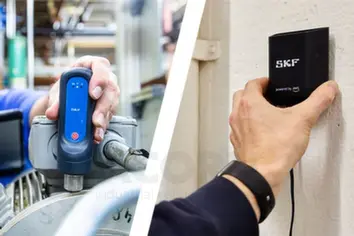Applications common found in the pharmaceutical industry include:
- Granulators and Mills
- Mixers and Blenders
- Chemical Agitators
- Processing Machinery
- Pumps and Fans
- Conveyors
- Packaging Equipment
Legislation is strict in the pharmaceuticals industry. Product quality and safety is paramount, in order to avoid product recalls and the potential for prosecution, which are both costly and extremely damaging to the brand image. All components used within the industry must be compliant with industry requirements. For example, lubrication used on components in close proximity to products must be food-grade, and components subject to frequent washdowns must be corrosion resistant, in order to prevent contamination.
Hygiene is a major consideration for the pharmaceuticals industry. Many applications are subjected to frequent high pressure washdowns, which can be damaging to machine components, and cause corrosion. Corrosion resistant components are essential, to avoid contamination. Components also need to be made from inert materials which will not react to either the chemicals used in the washdowns, or the drugs being produced.
Another concern within the pharmaceutical sector is energy consumption. Plants are under increasing pressure to reduce their energy usage, to reduce both costs and their carbon footprint. Using energy efficient components is a simple way to conserve energy, without affecting production.
Continuity of production is key for pharmaceuticals companies. Unplanned downtime is not an option, so component reliability is essential. Condition monitoring systems can also help this by detecting failure before it occurs, so that preventative maintenance can be scheduled.
Products commonly used in the pharmaceuticals industry include:
- Polymer ball bearings
- Solid Oil bearings
- Stainless steel bearings
- Energy efficient bearings
- Bearing units
- Seals
- Hygienic clamping assemblies
- Polyurethane belts
- Corrosion resistant stainless steel chain
- Maintenance free chain
- Linear guides and carriages
- Linear actuators




